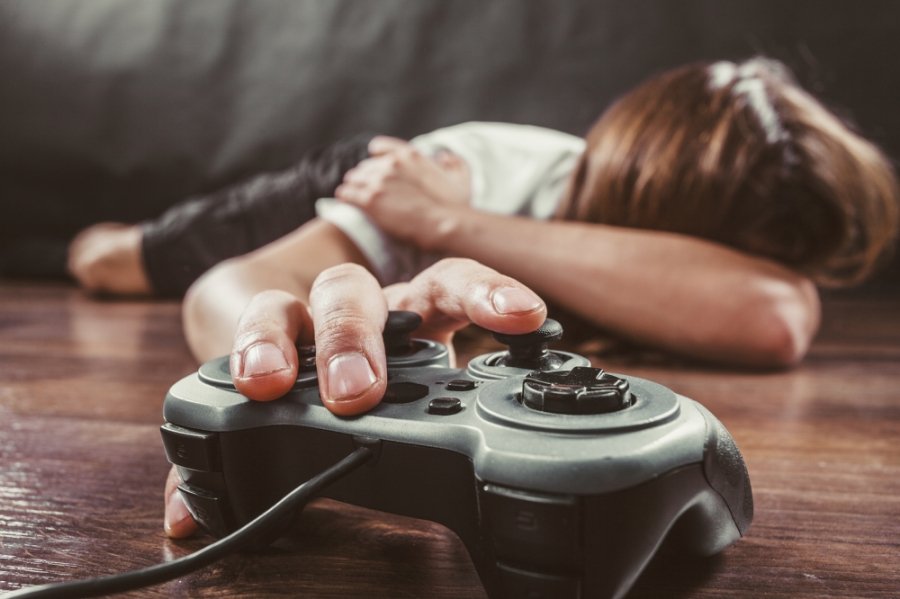According to the organization ISFE extension, 50% of citizens aged 6-64 in Europe video is playinggameα. This number increases significantly in ages 6-10 (68%), as well as in ages 11-14 (79%) and 15-24 (72%). According some investigations, teenagers may spend up to three hours a day playing games.
"This is not necessarily a problem, as long as they have time for other activities" he says Phil Muncaster from the team at the global digital security company ESET.
But for some, what started out as a healthy interest – perhaps by during the holidays – it can eventually develop into an obsession, even an addiction says o Muncaster. Worried parents need to know what the warning signs are and what they can do to deal with problems before they get out of control.
The main signs that your child may be spending too much time on electronic games
Parents who did not grow up with digital technologies and on-demand video games sometimes tend to overreact when their children they spend time glued to a screen. Of course they have legitimate concerns: about the people their children might be chatting with on social medianetwork, for the impact on their sleep, mood and behavior and even their physical health.
So how can you tell if your child is addicted to video games?
They may begin to immerse themselves in the digital world to the point where they stop paying attention to things happening in real life, say experts from the company ESET. This may include:
- They begin to neglect their personal hygiene or diet
- They avoid face-to-face communication with their friends
- They become irritable and restless when they are not playing their favorite games
- They look overly tired or have headaches or sore hands/eyes from playing
- They refuse to go to school in order to play more
- They have trouble sleeping
- They lie about how much time they spend playing
- Any attempt to limit their screen time leads to major confrontations/tantrums
Of course, if your children show any of these symptoms, it does not mean that they are addicted to electronic games. In contrast, many game addicts do not exhibit all of these symptoms. The best way forward is to talk to them about your concerns and, failing that, share those concerns with your child's teachers.
How can you reduce the time your children spend on electronic games?
If you're concerned about how much time your child spends playing games each week, consider the following steps as a good starting point.movements, says o Phil from ESET:
- Contact your children: No matter what happens, keep talking to them. Your children need guidance, but they also need an open, non-judgmental environment to share their concerns and feelings. Leave the blame game aside and try to understand each other more.
- Build up confidence: Part of this communication process is establishing trust and confidence. Simply telling your children what to do will force them to hide the negative behavior. Be as open and empathetic as possible about the difficulties your children go through as they grow up.
- Find the limits together: Just as you should try to avoid giving orders to your kids, resist the urge to take their devices or consoles. Instead, sit down together and make a plan to reduce their screen time, perhaps by uninstalling gaming apps on certain devices. This may need to be done gradually. Work out a daily time limit for games, maybe, or an hour vacationof the use of the household Wi-Fi. If you do this jointly, you have a better chance of success.
- Schedule digital breaks: As part of the collaborative climate with your kids, consider sitting down with your kids and scheduling short breaks away from their devices/consoles. It could be a trip for a few hours or even a weekend. Try to do something that pleases you both and keep the encouragement/motivation levels as high as possible.
- Consider using a parental control app: Specialized software may block access to certain game applications and/or limit their use with time limits. If you're worried that your kids aren't keeping their side of the bargain, it can be a helpful way to minimize the damage. However, to always explain why you use such tools.
- Safety first: In addition to concerns about overuse of gaming websites, many parents are also concerned about who their children interact with online and the type of content they are exposed to. The applications parental control they can handle the second concern. But parents should also be prepared to talk to their children to ensure they are aware of the potential risks they face in the digital world. As digital citizens, it's easy to think that kids are more internet savvy than they really are. Make sure they understand the dangers of sharing too much personal information, as well as the dangers of malicious users, who are characterized as "predators". They should be able to tell you everything without fear.
Parents sometimes forget how stressful growing up is. In this context, video games can be a wonderful respite from all the emotional tension, while also helping kids develop some underrated skills like hand-eye coordination and problem solving. But it's also important to keep them safe and healthy – intervening as soon as possible if things start to get out of hand.





